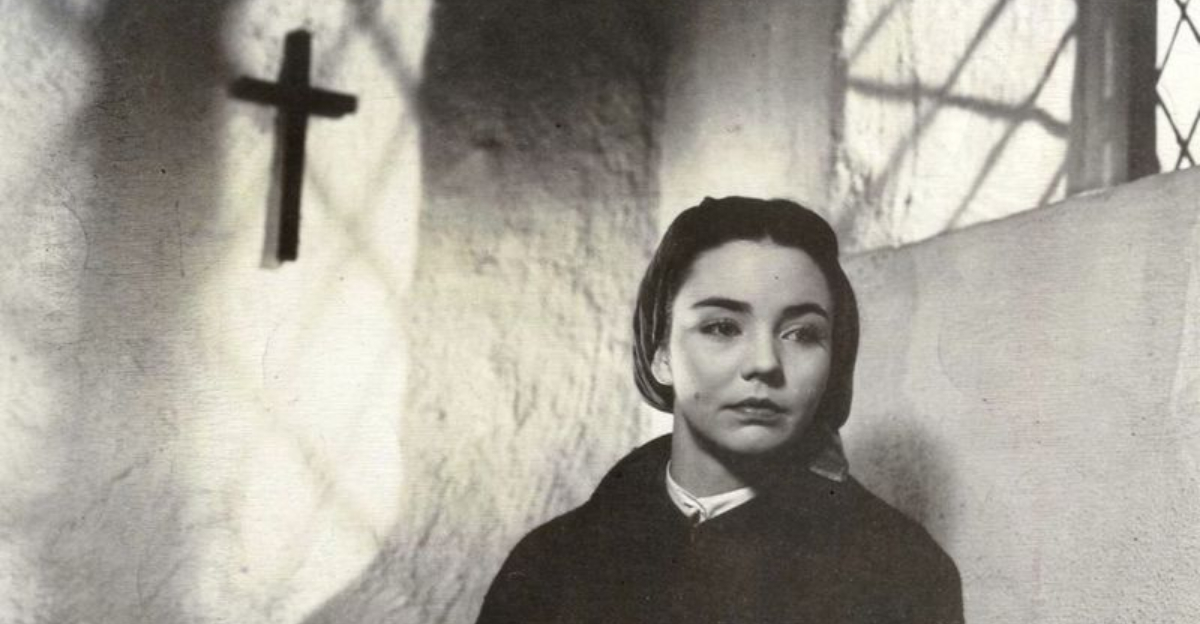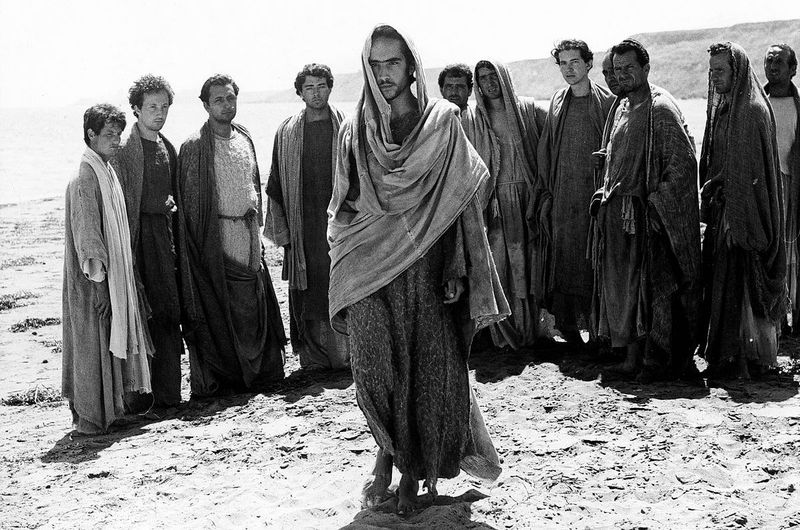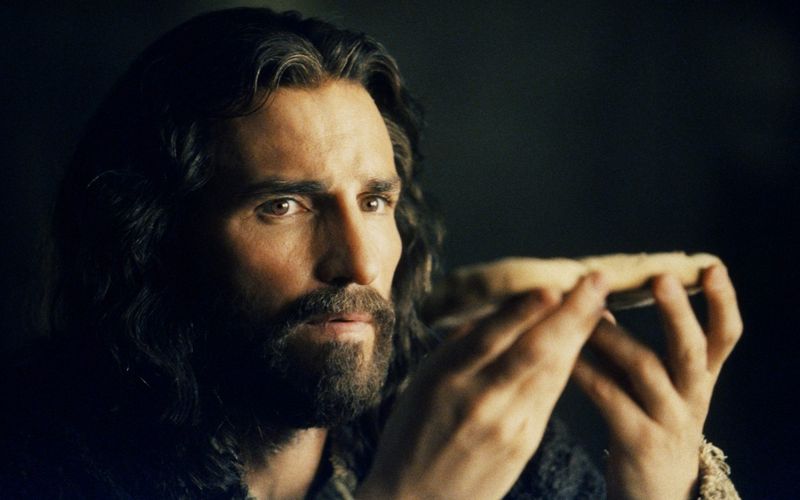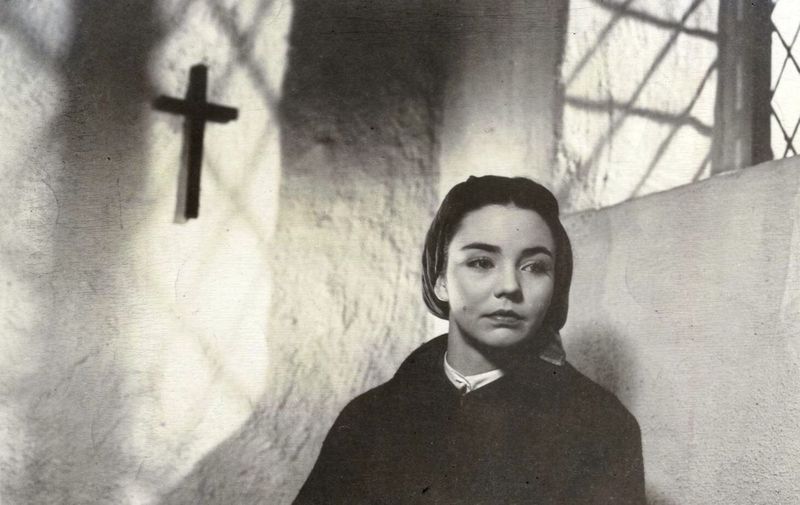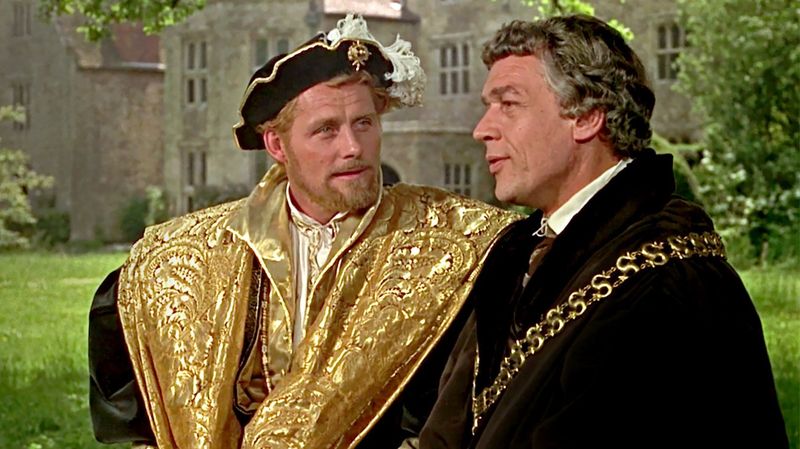Religious films have long offered audiences a range of narratives that explore deep spiritual and moral questions. They’ve sparked conversation, reflection, and sometimes controversy.
Here, we present ten critically acclaimed religious films that have left indelible marks on cinema history. Each of these films offers a unique perspective on faith, belief, and the divine, engaging viewers with powerful storytelling and thought-provoking themes.
From classic tales to modern interpretations, these films are revered for their artistic merit and the profound impact they’ve had on audiences worldwide.
1. The Gospel According to St. Matthew (1964)
Directed by Pier Paolo Pasolini, this Italian film offers a raw portrayal of Jesus’s life. Pasolini adheres closely to the Gospel of Matthew. Using non-professional actors and shooting on location, the film achieves authenticity.
The neorealist approach humanizes Christ’s story, portraying it with simplicity and depth. Viewers are invited to reflect on the essence of Jesus’s teachings and their universal relevance.
The film’s stark and honest style resonates with audiences seeking a genuine depiction of biblical events. Pasolini’s vision challenges traditional portrayals, offering a fresh and contemplative perspective on the life of Christ.
2. Ordet (1955)
Carl Theodor Dreyer’s “Ordet” explores faith and miracles in a Danish village. The film delves into themes of belief and doubt. It offers a profound meditation on spirituality and the human condition.
Characters grapple with the power of belief and the nature of miracles. Dreyer’s direction imbues the film with a quiet intensity that captivates viewers. The narrative unfolds with deliberate pacing, encouraging reflection.
Its minimalist style emphasizes the emotional depth of the characters’ struggles. “Ordet” remains a testament to the enduring questions of faith and the complexities inherent in spiritual beliefs.
3. The Passion of the Christ (2004)
Mel Gibson’s “The Passion of the Christ” depicts Jesus Christ’s final hours. The film’s visceral portrayal is both intense and unflinching. It sparked global discussions on the nature of sacrifice and redemption.
The graphic depiction emphasizes the depth of Christ’s suffering. Audiences witness the emotional and physical toll of these final hours. The film’s cinematography and score enhance its powerful impact.
Viewers are confronted with the raw reality of these pivotal events. By presenting such a stark narrative, the film invites deep reflection on faith and the human experience. Its legacy endures in religious and cinematic discussions.
4. Ben-Hur (1959)
“Ben-Hur” intertwines themes of revenge and redemption against the backdrop of Jesus’s life. The epic tale is renowned for its grand scale and iconic chariot race. Charlton Heston delivers a powerful performance as Judah Ben-Hur.
The film’s narrative explores personal and spiritual transformation. Its depiction of Jesus offers a subtle yet profound influence on the protagonist’s journey. The production’s colossal sets and meticulous detail captivate viewers.
As one of Hollywood’s most celebrated epics, “Ben-Hur” continues to inspire audiences. The film’s enduring legacy highlights the timeless appeal of stories rooted in faith and human resilience.
5. The Song of Bernadette (1943)
“The Song of Bernadette” tells the true story of Bernadette Soubirous. This young girl experiences visions of the Virgin Mary in Lourdes, France. The film depicts her journey of faith amidst skepticism. It portrays her resilience in the face of adversity.
Jennifer Jones’s portrayal of Bernadette captures her innocence and determination. The narrative balances drama and spirituality with sensitivity. Cinematic techniques emphasize the mystical elements of her visions.
Audiences are drawn into the transformative power of faith. This classic film remains a poignant exploration of belief and divine encounters. Its legacy endures in religious and cinematic history.
6. The Ten Commandments (1956)
Cecil B. DeMille’s “The Ten Commandments” retells Moses’s story. The film is a hallmark of Hollywood’s golden age. It showcases epic storytelling and grand spectacle. Charlton Heston stars as Moses, leading the Israelites from Egypt.
The film’s ambitious production captivates audiences with its visual splendor. DeMille’s direction delivers a timeless tale of faith and freedom. The narrative explores themes of leadership and divine purpose.
Iconic scenes, such as the parting of the Red Sea, remain memorable. “The Ten Commandments” continues to be a favorite among audiences. Its enduring appeal lies in its celebration of biblical heroism.
7. A Man for All Seasons (1966)
“A Man for All Seasons” chronicles Sir Thomas More’s stand against King Henry VIII. The film explores themes of conscience and integrity. More faces the king’s separation from the Catholic Church. His unwavering faith and moral conviction guide his decisions.
Paul Scofield’s performance as More is both dignified and compelling. The narrative highlights the personal cost of standing by one’s beliefs. Cinematic techniques underscore the tension and drama of this historical conflict.
Audiences are invited to ponder the nature of integrity. The film’s impact endures as a timeless exploration of faith and moral courage.
8. Life of Pi (2012)
Ang Lee’s “Life of Pi” adapts Yann Martel’s novel into a visual masterpiece. It explores faith and survival through a young man’s journey at sea. Pi Patel shares a lifeboat with a Bengal tiger. The film’s stunning visuals and effects enhance its storytelling.
Themes of spirituality and resilience are woven throughout. Pi’s introspection leads to profound insights about existence. The narrative challenges viewers to reflect on belief and truth.
The film’s artistry and depth resonate with audiences worldwide. “Life of Pi” remains a testament to the power of storytelling and the human spirit.
9. Silence (2016)
Martin Scorsese’s “Silence” explores faith’s challenges. Set in 17th-century Japan, Jesuit priests face persecution. The film delves into the complexities of belief under duress. Andrew Garfield portrays a priest torn between conviction and survival.
Scorsese’s direction imbues the narrative with intensity and nuance. The lush landscape contrasts with the harsh realities faced by the characters. The film offers a meditation on faith’s endurance in adversity.
Its themes resonate with audiences confronting their beliefs. “Silence” invites reflection on the nature of sacrifice and redemption. The film’s impact lies in its profound exploration of spirituality.
10. The Last Temptation of Christ (1988)
Martin Scorsese’s “The Last Temptation of Christ” provokes thought with its unique portrayal of Jesus. The film explores Jesus’s human side, including his temptations. Willem Dafoe’s performance captures this internal conflict.
The narrative challenges traditional views of divinity. Controversial upon release, it sparked widespread discussion. Scorsese’s interpretation invites viewers to ponder Jesus’s dual nature.
The film’s artistic choices emphasize its thematic depth. Cinematic techniques create a haunting and reflective atmosphere. “The Last Temptation” remains a bold exploration of faith and humanity. Its legacy endures in both religious and cinematic circles.
